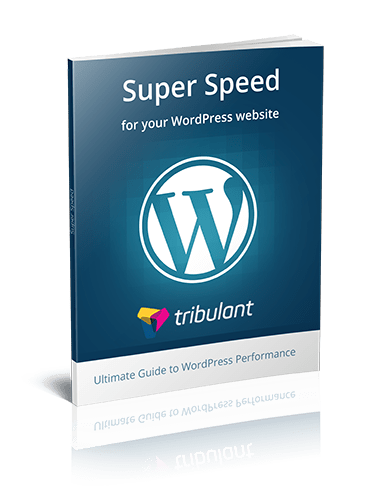
How Inactive Plugins Can Reduce Your WordPress Site’s Performance?

WordPress CMS is arguably the most popular system for hosting websites on the web. Latest statistics show that WordPress is single-handedly powering 26% of the internet as we know it. The sheer plethora of customization options available through WordPress means that it’s suitable for a number of different applications. Everything from blogging to ecommerce works in WordPress thanks to the numerous plugins on the market.
However, the question remains as to how many plugins is too many plugins? At what point should you stop and reconsider the number of additions you have made to your WordPress website? Let’s take a look at how inactive, dormant plugins can cause harm to your website’s performance, SEO ranking and overall user experience.
1. Creating a clutter
If nothing else, your offline plugins will cause a clutter in the CMS database. Should you decide that a plugin is no longer necessary for your website, it’s best to simply delete it.
You can install plugins again if the need comes up down the line. Gathering plugins for the sake of safekeeping is a wrong move. You will have a much harder time organizing your plugin repository and coming to grips with active and inactive plugins if you keep gathering them.
2. Hosting provider errors
As with any website on the internet, you will require a hosting provider in order for your site to function properly. Hosting comes in numerous variants and packages depending on your traffic expectations, server data needs and security to name a few.
Once you make a contract with a hosting provider, they will have access to your site’s performance, overall traffic as well as the number of plugins used to power your website. The hosting provider will receive red flags for your inactive plugins and that may raise their concerns about the security and legitimacy of your business.
In turn, they might decide to block your incoming ports to protect would-be visitors from any virus attacks due to your dormant plugins. This is a grave error since it can effectively disrupt your daily operations and put your site offline as a result of inactive plugins present on the server.
3. It’s a security risk
We’ve touched on the topic of viruses present on your server due to inactive plugins – but what of it? How do inactive plugins spell out “virus risks” if you have an active hosting provider protection present? Hackers and malware programmers constantly target inactive plugins in WordPress CMS for potential leaks.
These inactive pieces of software are the perfect target for anyone who wants to get access to your server and database. The moment you reactivate your plugin, the payload will come with it.
By the time you realize what had happened, a remote station will have access to your site’s data, modification options, or worse. In order to avoid this, it’s best to completely remove any plugins which are not actively used and only install them fully again when they become necessary.
4. Resource allocation problems
A hosting server has limited resources allocated to each website on its list. The same applies for your website which is currently host to multiple inactive plugins. Once you decide to add a new plugin or reactivate an important part of your website, you may not be able to do so.
Outbound ports are a delicate matter when it comes to plugin allocation. Plugins often close off ports automatically to reserve their space for future activity. This raises concern since you won’t be able to add anything new to your website so long as the inactive plugins keep their seats reserved on the outbound ports list. To avoid this, you should remove them completely instead of putting them on ice for the foreseeable future.
5. Constant update prompts
Whether your plugin is active or not, it will still ask you to update it. Constant update prompts can decrease the overall performance of your website and make it harder for you to manage the plugins you really need to use.
Should you choose not to update any of your inactive plugins, you will be penalized for hosting outdated code even though you are not using them actively. This is due to the fact that plugins and WordPress have to perform a handshake and confirm the versions between them. Coupled with WordPress CMS updates which are constantly rolling out, you could see a very problematic situation formulate due to your inactive plugins.
6. Lack of development support
Lastly, the bane of every WordPress administrator is to find out that a plugin they actively use has no more development support. This is a huge issue for inactive plugins since you won’t know that they are completely obsolete until you actually activate them. Development support is a constant issue since most programmers are simply freelancers and independent creators without a company to back them up.
It’s completely normal to have a developer drop support of a popular plugin even though there is a demand for more updates. Don’t find yourself in the situation with outdated plugins without active support behind them. Delete them permanently when you don’t need them and bring them back on if you do.
A few select plugins (Conclusion)
The best practice for WordPress CMS administrators is to only rely on a few select plugins at a time. Plugins such as WooCommerce (for ecommerce) are a necessity and cannot be exchanged for anything else. However, less important plugins which only serve to provide minute quality of life improvements should go.
Don’t risk the performance of your website only to keep a few plugins handy “just in case” you might need them. There is a plethora of high quality WordPress plugins out there and you will always find a replacement for the ones you might have deleted. Learn to let go of your plugins and your site’s performance will never dip under the threshold.
Steven Mehler is an editor at Top Writers Review. He holds a Master’s degree in Interpersonal Communication and is very passionate about technology. This has led to a career in writing and editing, which he now enjoys for over five years. In his spare time, Steven loves fishing, visiting national parks and building gaming computer rigs.
Earn Money by Referring People
Refer customers to us with your affiliate link and earn commission on sales from your link.




No comments yet